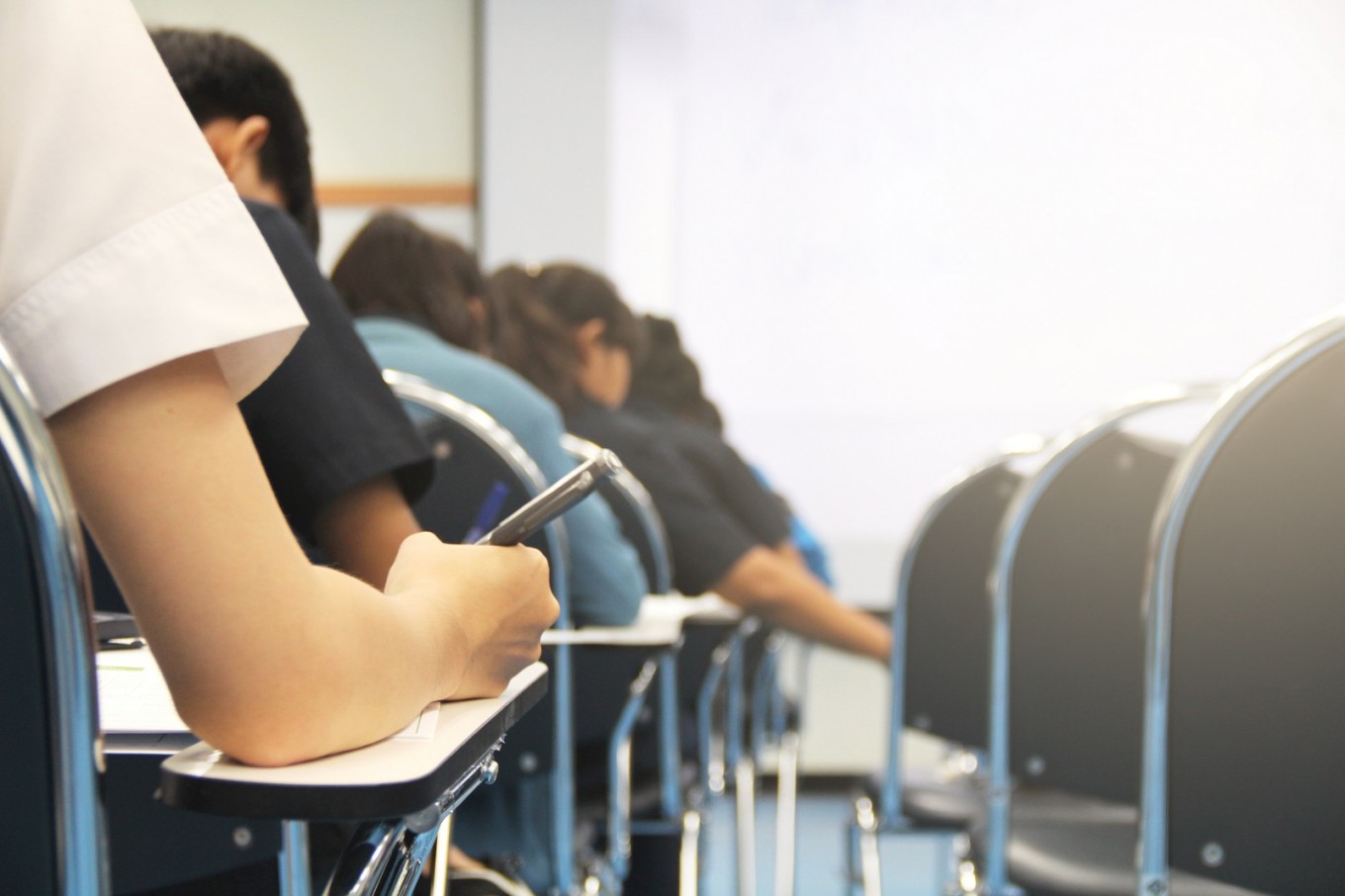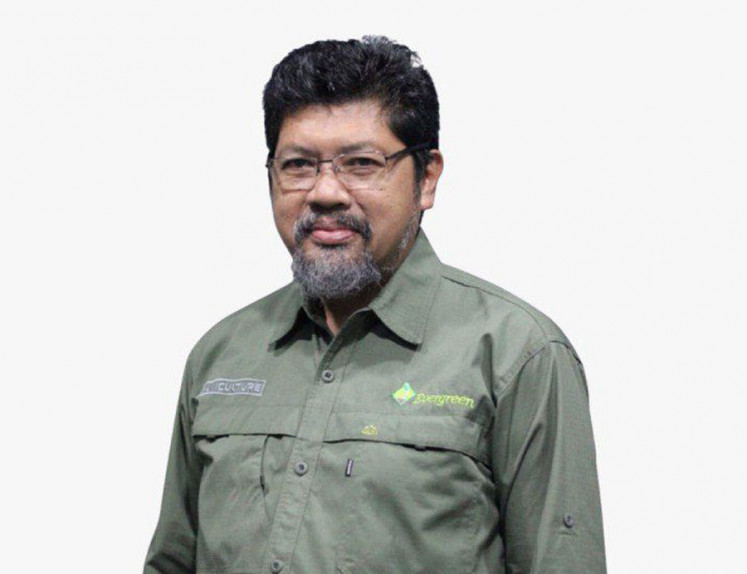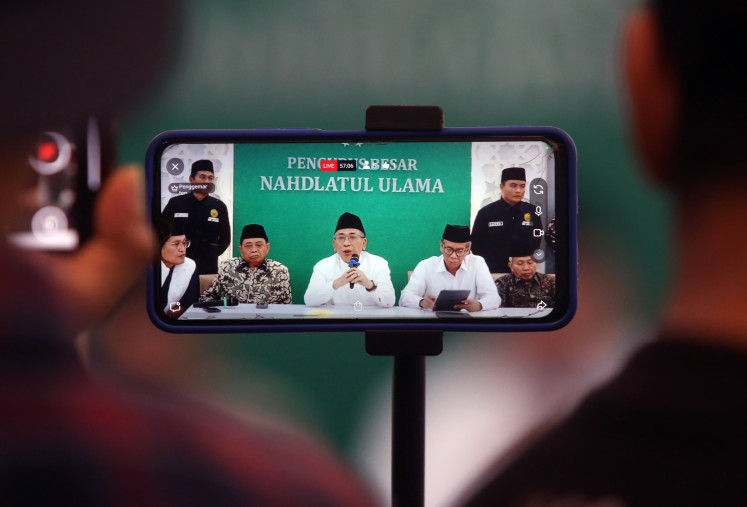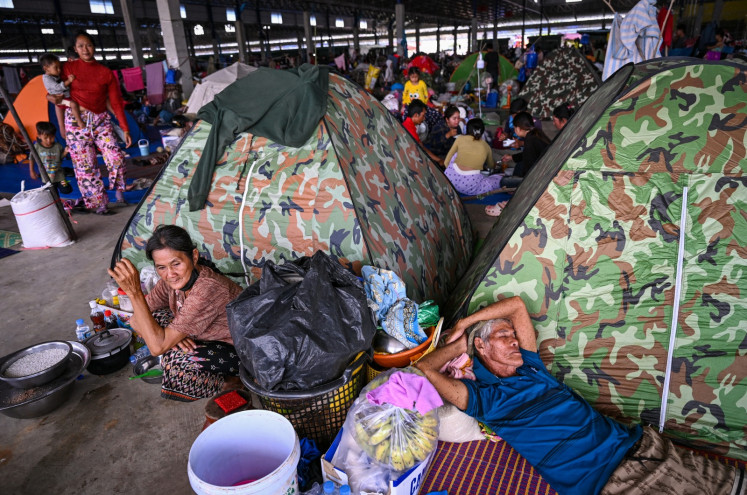Popular Reads
Top Results
Can't find what you're looking for?
View all search resultsPopular Reads
Top Results
Can't find what you're looking for?
View all search resultsA 'democratic' school: Utopia or reality?
Authoritarian schools have an armada of strict rules, a smattering of mandates, and no shortage of punishments.
Change text size
Gift Premium Articles
to Anyone
A
rowdy pack of teenagers enter a diner. They sit, squabbling over the menu to each decide their order. Then, the waiter approaches. One by one they rattle off their choice of food and beverage, until there remains only one teenager who hasn’t placed his order. Minutes pass, first three, then ten… The waiter has come and gone three times, and his friends are getting even more restless. We’re hungry! Why are you taking so long? Still, the tall young man looks bewildered. He replies that he’s confused, this rice looks very tasty, but I want to have a go at these noodles as well… I don’t know which to choose!
I lean over from my own table and chirp in my most jovial tone; you can try both! Try ordering just one now, perhaps the rice. When you dine here again, you can order the noodles. That way you’ll still have what you want to eat, and your curiosity won’t eat at you, I smile. He looks at me then, still looking like a deer in the headlights. Slowly, he nods. The fourth time the waiter comes around, he hesitantly orders the rice.
It was disconcerting to see this young man have such trouble making such a simple choice. This was only food, after all. What if he’s put in a position of power when he’s older, responsible for not only his own welfare but perhaps his employees, or his family? What if he’s called on to make a difficult choice on which many lives depend on? Will he freeze again?
That teenager’s wide-eyed confusion is all too common in the faces of our masses of every sort of demographic: be it age or class. Hesitant, timid in the face of a decision, laughing awkwardly and then choosing to fall into step behind someone else’s calls. Just like that a hive-mind is developed, a cultural tendency to follow. True leaders are rare creatures, especially in Indonesia. Whatever could have been the cause of such a widespread plight?
Homes, as the first seat of education, are often too protective, shielding children from decisions and their consequences. Don’t climb that tree, you’ll fall! Don’t handle those scissors, let Mom do that. You’ll cut your hand. These are sentences we commonly hear in a family home. Not to mention the (bizarre!) habit of blaming other people or even inanimate objects for common mistakes. Oh, did you skin your knee falling from your bike? What a bad bike, we’ll have to give it a proper spank now, won’t we? --Yes, that sounds odd, but it’s a very common thing to say among Indonesian parents. Children grow up doubting and timid, learning early on to constantly shift the blame onto something (or someone) else when they make a mistake.
Ironically, schools and other educational institutes also contribute to this befuddled generation. Let’s have a look at several types of schools with different methods. Authoritarian schools have an armada of strict rules, a smattering of mandates, and no shortage of punishments. Often the only kind of mindset this breeds is that of anti-domination and opposition to authority of any kind. Which, really, flies in the face of what the authoritarian school tries to achieve anyway.
Meanwhile, a permissive school allows the student to do just anything, even though its effects are negative. The last of these is the ignorant school, which tends to neglect its students more than it does anything else. These three types of schools produce students who are very similar despite their stark differences -- they are all negative, producing imbalanced personalities. Overly policed by the authoritarian school, students rebel and fight. The permissive method renders them dependent and spoiled, used to being catered to and yet unable to do most things for themselves. The ignorant and neglectful school results in students lacking direction, consistently confused when facing choices and when called on to make decisions.
There should be the fourth choice. A school with what we call a democratic approach to education. In this school, teachers share a voice with their students in calling the shots. There is a balance that we strive to maintain, between freedom to express and create, and the rules agreed upon in class. Teachers must be keen-eyed and strategic in placing themselves: as guides, guardians, and when needed, supervisors. They regularly communicate with students about rights and responsibilities, things that they want to achieve, and how they can achieve those things.
Students are given the freedom to become confident in decision-making, as well as being accustomed to knowing and understanding the consequences to each of their choices. A democratic student is also used to expressing their opinions and respecting others’, which includes being aware of everyone’s chance to speak and be heard.
They do not force their will, but are able to politely hold their ground. A democratic student is also synonymous to a creative personality who can tackle a problem from multiple points of view to find a solution. They are accustomed to leading, and holding themselves responsible for the choices they make. They are not wide-eyed deer in headlights, and are not constrained to living within the boundaries of the hive-mind.
A democratic school is where students are educated and guided into developing themselves into people who walk well in real life. This institute is where they are embraced and supported, consistently given choices based on the data they are trained to gather to enable them make the best decisions.
As Jack Ma said, the 21st century and onwards is no longer the “age of technology”, it is the “age of data”, where everything is surrounded by data in the trillions, sentillions, and googolplexes. Our children must pick and choose their way among heaps of data, every moment of every day. Only in a democratic school can they be wholly prepared to become responsible, reliable decision-makers, and self-regulated leaders in no shortage of skills and capability to manage not only themselves, but others as well.
There in the ideal life, lies this fourth choice: A school with a democratic approach. Are efforts being made to achieve this ideal? For the sake of the world’s future, there should be.
***
The writer is a teacher of English, music and math in Medan.










